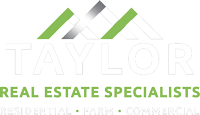Are you tired of renting, or are you finally ready to move out of your parents’ house? Buying a home is a big step, and preparation is key. To help you get started, follow these 10 steps to become a homebuyer with confidence.
1. Set Your Home Buying Budget
First, you need to determine how much you can afford. For example, a good rule of thumb is that you can afford a home worth two to three times your annual income. Moreover, to stay on track, use a Budget Basics Worksheet and Mortgage Affordability Calculator to track income, expenses, and savings.
2. Create Your Home Wishlist
Now that you have a budget in mind, let’s think about what features you need and want in a home. To stay organized, create a list and prioritize your must-haves. Specifically, consider:
✅ Number of bedrooms and bathrooms
✅ Backyard size
✅ Garage space
✅ Levels of home-1 story, 2 story, basement
3. Choose The Best Location for Your Home
After that, it’s time to select the right location. More importantly, focus on three or four areas based on key factors like:
- School districts – Research ratings on GreatSchools
- Future growth – Look at city development plans
- Crime rates – Check reports on FBI Crime Data Explorer
4. Save for a Down Payment and Closing Costs
Now that you have a budget and a location in mind, start saving for your down payment and closing costs. Your required down payment depends on your loan type:
- 0% down – USDA or VA loans
- 3-5% down – FHA or some insured conventional loans
- 20% down – Standard conventional loan
In addition, don’t forget closing costs (in particular, these costs include: taxes, title fees, insurance, inspections, and more), which typically range from 2% to 7% of the purchase price.
5. Improve Your Credit Score Before Buying a Home
Before applying for a loan, take these steps to boost your credit score. Since lenders use your credit score to determine loan eligibility and interest rates, it’s important to check your credit report for errors. In preparation, get a Free Credit Report and understand the Five Factors That Affect Your Credit Score so you are informed and can improve it if necessary.
6. Explore Your Mortgage Loan Options
Next, you should find out how much mortgage you qualify for and compare loan types. Here are some common options:
- 30-year fixed – Lower monthly payments
- 15-year fixed – Pay off your loan faster
- ARM (Adjustable-Rate Mortgage) – Lower initial interest, but rates can change
To clarify, if you are unsure which loan is best for you, consider reviewing these 12 Essential Questions to Ask a Mortgage Lender.
7. Get Pre-Approved for a Mortgage
After selecting a loan type, the next step is getting pre-approved. This will strengthen your offer when you find the right home. Specifically, to complete the process, you’ll need:
📄 W-2 forms and pay stubs
🏦 Recent bank statements (last 2-4 months)
💳 Credit history
Click here to review a Mortgage Loan Checklist.
8. Look Into Down Payment Assistance Programs
For instance, you may qualify for special assistance programs. Therefore, it’s a good idea to ask your lender about first-time homebuyer assistance. Additionally, if you have an IRA or 401(k), you may even be able to use funds without an early withdrawal penalty.
9. Calculate the True Cost of Homeownership
Owning a home involves more than just making mortgage payments. Therefore, be sure to budget for:
💡 Utilities (electricity, gas, water, internet)
🔧 Maintenance and repairs
📑 Property taxes and homeowner’s insurance
🏠 HOA fees (if applicable)
10. Work with an Experienced REALTOR®
Most importantly, working with an expert can make the process much easier. A knowledgeable REALTOR® will guide you through each step, negotiate offers, and help you find the perfect home.
Ready to Get Started?
If you’re thinking about buying a home, we’re here to help!
Contact Taylor Real Estate Specialists today!
📞 Call: 765-362-4123
📧 Email: Lisa@Taylor-RES.com
Next, read about Take the Stress Out of Home Buying!

